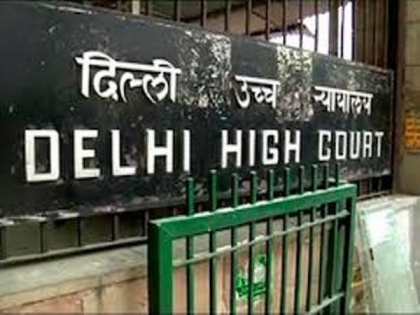Centre urges Delhi HC to dismiss petition seeking stoppage of data collection through CMS, NATGRID, NETRA
By ANI | Published: February 5, 2021 02:36 PM2021-02-05T14:36:35+5:302021-02-05T14:45:07+5:30
The Centre on Friday urged the Delhi High Court to dismiss the petition seeking to stop the collection of data through Central Monitoring System (CMS), National Intelligence Grid (NATGRID) and Network Traffic Analysis (NETRA) saying that there is no blanket permission to any agency for interception or monitoring or decryption as the authorised agencies require the permission of the competent authority i.e. Union Home Secretary in each case as per the due process of law and justification for interception or monitoring or decryption.

Centre urges Delhi HC to dismiss petition seeking stoppage of data collection through CMS, NATGRID, NETRA
The Centre on Friday urged the Delhi High Court to dismiss the petition seeking to stop the collection of data through Central Monitoring System (CMS), National Intelligence Grid (NATGRID) and Network Traffic Analysis (NETRA) saying that there is no blanket permission to any agency for interception or monitoring or decryption as the authorised agencies require the permission of the competent authority i.e. Union Home Secretary in each case as per the due process of law and justification for interception or monitoring or decryption.
In an affidavit filed by Central Government Standing Counsel Ajay Digpaul, the government told the court that permission regarding interception can be given only for the purposes mentioned in section 69 of the IT Act 2000, i.e.sovereignty and integrity of India, defense of India, security of the State, friendly relations with foreign States, public order, preventing incitement to the commission of any cognizable offence relating to above, or investigation of any offence.
"It is further submitted that the grave threats to the country from terrorism, radicalization, cross border terrorism, cybercrime' orgzed crime, drug cartels cannot be understated or ignored and a strong and robust mechsm for timely and speedy collection of actionable intelligence including digital intelligence, is imperative to counter threats to national security," the affidavit read.
The government further added that this is undeniably legitimate state interest and hence submitted, "It is therefore imperative that the requests for lawful interception monitoring must be dealt with by the executive authority to maintain speed and promptitude in taking decisions. A well laid down procedure for oversight by a committee headed by the Cabinet Secretary doubtlessly ensures that the provisions of law, rules and SOP are adhered to."
The government further submitted that though the right to privacy is held to be a sacred fundamental right and is being respected by the Government of India, the veil of privacy can be lifted for legitimate state interest namely in the interest of sovereignty or integrity of India, defense of India, security of the state, friendly relations with foreign states or public order or for, preventing incitement to the commission of any cognizable offence relating to the above-referred categories or for investigation of any offence.
The government said that the petitioner submitted that Centralised Monitoring System (CMS), NATGRID and NETRA allow the law enforcement agencies for bulk collection and analysis of personal data illegally and do not follow the privacy safeguards with adequate oversight as laid down by the Court, are totally wrong and denied.
The government said that the structure and functioning of CMS, NATGRID and NETRA, are designed to strengthen the existing lawful interception process for more secure and transparent functional within prescribed legal provisions and procedures.
Further, the Standard of Procedure for the interception, handling, Use, Copying, Storage and Destruction of Messages and telephonic intercepts emails under Section 5(2) of Telegraph Act and section69 of IT Act issued by MHA on 19.5.2011, clearly mandates that the direction for interception or monitoring of any message or class of messages or any information generated, transmitted, received, or stored in any computer resource shall be issued, the government apprised the court.
A Division Bench of Chief Justice DN Patel and Justice Jyoti Singh listed the matter for further hearing on March 19, 2021.
The court was hearing a petition seeking to stop the collection of data through Central Monitoring System (CMS), National Intelligence Grid (NATGRID) and Network Traffic Analysis (NETRA) claiming they create 360-degree surveillance on the public and breach their right to privacy.
A petition filed by Centre for Public Interest Litigation (CPIL) and Software Freedom Law Centre through advocate Prashant Bhushan, has claimed these three data collection systems infringe the fundamental right to privacy of individuals. Appearing for the petitioners, the advocate urged the court to permanently stop the execution and the operation of the surveillance projects namely CMS, NETRA, and NATGRID which allows for bulk collection and analysis of personal data.
( With inputs from ANI )
Disclaimer: This post has been auto-published from an agency feed without any modifications to the text and has not been reviewed by an editor
Open in app